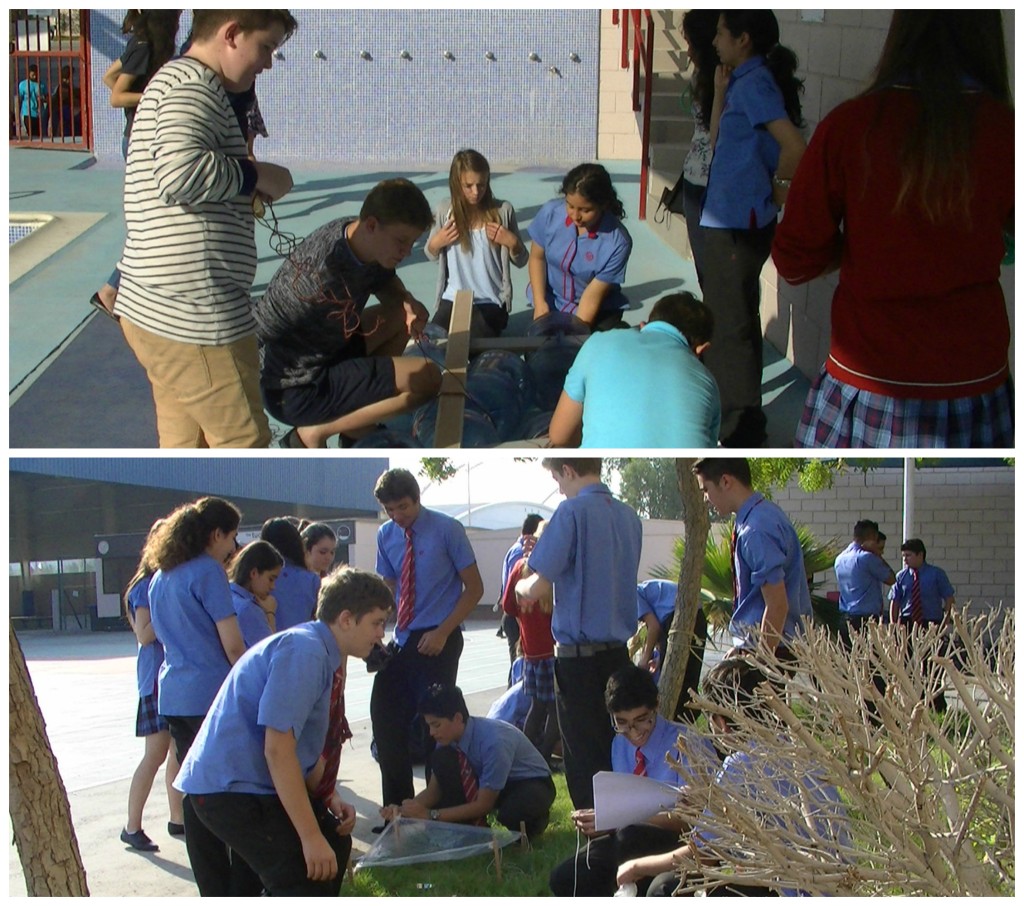Year 10 Survival Skills

Year 10 students have been learning the art of survival in their Enrichment sessions during November and December. Demonstrations in assemblies on knot tying, raft building, shelter building and water collection have been followed up with three practical sessions in which students tested their ability to survive in the wild, albeit in the relative safety of the school grounds! The raft building sessions were hugely popular. Students were equipped with only empty water bottles, wood and rope and tasked to build a raft capable of ferrying a student from one side of the swimming pool to the other with varying degrees of success. Isa Qamber from 10E said “The raft building was fun. We listened to everyone’s ideas and in the end we based our raft design on the shape of a motorcycle for balance, which worked well”. In the shelter building sessions, students had to design and construct a temporary shelter capable of withstanding heavy rainfall, or in the absence of real rainfall, a watering can full of water. Finally, students learnt a method of collecting water from the soil through the construction of a condensation trap. Left overnight, the traps collected a small amount of water in a receptacle, demonstrating the potential to tap into water sources from the soil. The Survival Skills sessions are part of a ‘Life Skills’ topic undertaken across all Year groups and are designed to equip students with a range of practical skills and knowledge which can be used in real life situations. Head of Year, Jamie O’Dowd said “As well as these sessions being a lot of fun, we are trying to give students a small set of skills they can use as part of The Duke of Edinburgh’s International Award in which many of our students are involved. We also hope the students will feel less daunted by the ‘great outdoors’ with the knowledge that survival is possible even with limited resources. I was really proud of the students, they did really well in the practical activities and we may well have the next ‘Bear Grylls’ in our midsts!”

